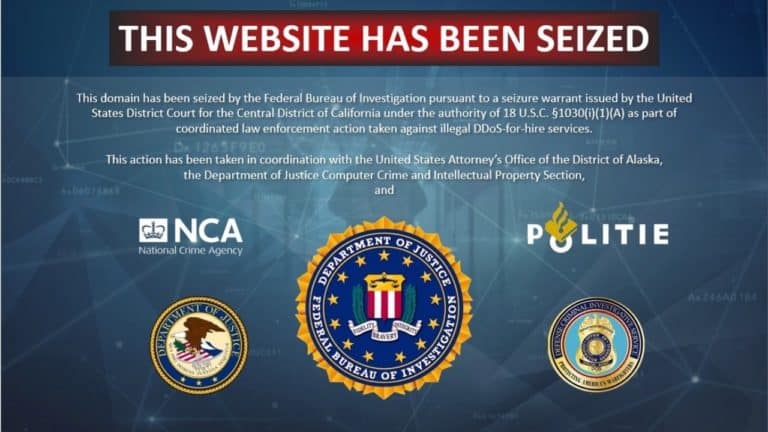Together with the Dutch police, among others, the American intelligence service FBI has taken a total of fifteen websites offline. The sites allowed malicious parties to order DDoS attacks. To put an end to this, the domains have been taken offline.
The FBI reported that yesterday. The U.S. intelligence service worked with the British National Crime Agency and the Dutch police, among others, to take the sites offline. This includes domains such as downthem.org, str3ssed.me and vbooter.org, where there are now FBI messages stating that the domains have been taken offline.
Many attacks
The fifteen sites that were taken offline offered DDoS attacks. In this way, the people behind the websites send as many visitors as possible to a site, in an attempt to make it inaccessible. Payments for the attacks were made using bitcoin and the attacks were relatively cheap. Each of the services was also tested by the FBI, which was then able to confirm that the DDoS attacks were actually carried out.
According to the FBI, it was about boater or stress services. Many victims were reported to have been made, including in the United States and other countries. Victims include government agencies, financial institutions, universities and gaming platforms. According to the FBI, the latter are often the victims of this type of attack during the holidays.
Three arrests
The FBI not only claims to have taken the sites offline, but also to have kept three men who may have managed the sites. Two of them were arrested in California, one in Alaska. The FBI writes that the DDoS attacks are serious crimes that can also cause real damage.
The DDoS sites are very popular. By way of comparison, the FBI reports that Quantum Stresser, one of the longest-running DDoS providers, had more than 80,000 registered users and carried out more than 50,000 attacks in 2018 alone. Over the past five years, the number of similar services has grown rapidly.
This news article was automatically translated from Dutch to give Techzine.eu a head start. All news articles after September 1, 2019 are written in native English and NOT translated. All our background stories are written in native English as well. For more information read our launch article.